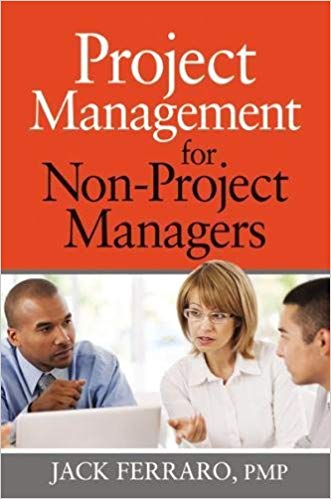If you’re a manager, chances are you are expected to manage projects on a regular basis. But you may never have received special training in project management. If not, you may be surprised to know that there are many methods for managing projects. While all have elements in common, each have their own specific nuances that one is best for a particular type of project.
How many project management methods are there? Let’s take a quick look at 5 non-technology approaches.
Method 1
Traditional project management. Traditional project management is a common-sense approach to starting, running, and completing a project. In fact, its five steps may seem obvious: initiation, planning, execution, monitoring, and completion. This method’s key to success is that each step must be completed before the next begins. This method is ideal for projects that have just one clear, concrete goal – projects like the construction of a building.
Method 2
The Critical Path Method (CPM). CPM starts with the structure of the traditional method, and then adds deadlines to each step. By following the CPM method, you can complete a straightforward project in a limited period of time. This works very well for projects when timing is important and it’s possible to predict how long each step will take. If a product must launch in time for Christmas, for example, CPM might be the right project method to choose.
Method 3
Critical Chain Project Management (CCPM). Managers choose CCPM when deadlines are flexible, but resources are scarce. The most resources are assigned to the most important steps in the project, so that they can be managed properly. The fewest resources are assigned to the least important steps, so these may take longer to complete. CCPM is less about efficiency and more about collaboration, teamwork, and getting the job done right.
Method 4
Event Chain Methodology (ECM). ECM is a project management method that works best when the process and product is hard to predict. For example, you might build a project around a particular budget, only to find that the budget you expected just isn’t available. That event (a new budget) starts a whole chain of changes to the project. By using ECM, you can manage change while also completing the project.
Method 5
Agile project management. Just as you might guess from its name, agile project management is flexible – and a great approach to managing projects that require lots of different people with a wide range of skills. Agile project management involves many small work groups, all collaborating on a single project. Each group focuses on its own strengths, so that, working together, a high-quality project is completed – on time, and on budget.
These 5 methods are only a few of the options available. As a project manager, it’s important to understand all of your options. That way, you can choose the project management method that best suits your needs, your organization’s needs, and ultimately, your goals.
______________________________________________________________________________
For additional resources relating to this topic, here are two of our most-download book summaries about Project Management:
There are plenty of books about project management, but this is the first one written for the people who have the most at stake: the senior executives who will ultimately be held accountable for the successes of the projects they approve and supervise. Top enterprise project management expert Michael Bender explains project management from the perspective that matters most to executives: adding value. Most books view project management from the inside, focusing primarily on lower-level issues. A Manager’s Guide to Project Management views it from above, explaining how project managers can best achieve the strategic goals of the business; the executive’s role in successful project management; and the tools available to executives who want to gain greater value from project management.
Functional managers with even basic project management (PM) knowledge are the best people for keeping projects business-focused. Project Management for Non-Project Managers demystifies the jargon and processes, encouraging managers to jump into the PM arena and arming them with strategies for increasing the business value created by their company’s projects.
______________________________________________________________________________
Soundview subscribers get in-depth summaries of the key concepts in best-selling business books delivered to them every month! Take your career to new heights by staying up-to-date with the trends and ideas affecting business leaders around the globe.






